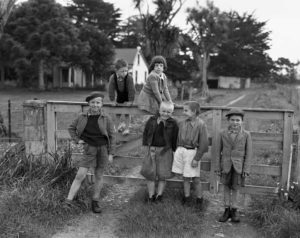
National Party MPs are known for their kindness in the same way that Waffen-SS soldiers were known for theirs – not. Conservative politicians speak a language of fear to their constituents, who duly wet their pants and give all their power away in the hope that some mighty ruler will put it right, like their parents did back in the day.
What characterises the true right wing from the left is the degree of distance between the top and the bottom of the preferred hierarchy. Right-wing voters are generally more than happy to debase themselves before a ruler, and are thus far more likely to bow the head to one, but are at the same time far more likely to abuse or neglect someone they consider beneath them.
Essentially this is a primitive kind of social logic that has probably carried over into modern culture from brain circuits that evolved to meet the challenges of an era during which humans were much more like chimpanzees. Before the Stone Age began, your competition had to be kept down by whatever means necessary lest they kill you for your territory or women.
This suggests that, for conservative politicians, pain and misery is the only language they’ll ever understand.
The sort of person who becomes a National Party supporter is generally someone of a fairly limited degree of life experience. It’s rare that a New Zealander ever goes travelling and sees the world only to come back and vote for a conservative party, and it’s rare that one ever goes to university to mingle with a wide range of people from everywhere only to vote conservative.
The National Party psychology is a particularly unfeminine one; it prizes order above all other values. It’s as if they were taught while very young that empathy invites chaos, and is something only for the foolish.
Correspondingly, women vote National significantly less than men do, primarily because women tend to vote more in community interest and less in self-interest. Why would a woman vote for a party that cut funding to rape crisis centres? On the face of it, that seems very odd, like an unusually low degree of gender solidarity.
So if you look at National Party women like Paula Bennett, Jenny Shipley, Ruth Richardson, Michelle Boag and Judith Collins, they stand out as a particular breed. There’s clearly something missing from them, something that corresponds pretty closely to what a healthy person would consider empathy.
A normal woman is a person who one feels comfortable leaving in charge of a small child; a National Party woman is a person who feels more comfortable with a glass of bubbly in one hand and that small child on a spit roast being rotated by the other.
So when Nicky Kaye came out this week and said her diagnosis of breast cancer had changed her attitude to medicinal cannabis, the sudden change of heart demonstrates the degree of separation between the people making laws about medicinal cannabis and those needing it.
Kaye might not have encountered many cannabis users before. She might not have spent so much as one minute ever hanging out with a personal friend who had a need for medicinal cannabis. In fact, Kaye probably moved in circles that considered all cannabis users to be criminal scum, medicinal need be damned.
There’s always been that iron edge in the blue soul of the National Party, the one that believes that anyone weak deserves it, that any momentary failure or backwards step is an invite to be destroyed.
It’s why pleas to repeal cannabis prohibition on the basis of compassion will never succeed. It’s mostly the poor, Maori and mentally ill who suffer from cannabis prohibition, and none of the poor, Maori or mentally ill vote National.
Someone else’s suffering is not real suffering to the sort of person who is a National supporter. If anything, someone else’s suffering is considered by them a good thing because it keeps that someone else down and makes them much less likely to rock the boat.
So appeals to other people’s suffering, now matter how much of it there is, will not motivate a repeal of cannabis prohibition in New Zealand in 2017.
If New Zealanders want a change to our cannabis laws before the end of the year, there is only one way it will happen: if the Prime Minister Bill English himself gets cancer and comes to appreciate the value of medicinal cannabis in the same way that Nicky Kaye did.
Helen Kelly wasn’t enough. Paul Holmes wasn’t enough. Even Martin Crowe wasn’t enough. Nicky Kaye won’t be enough either. If New Zealanders want any reform to our barbaric cannabis laws in 2017 they have little option but to pray that Bill English gets cancer for the greater good of the Kiwi nation.
*
If you enjoyed reading this essay, you can get a compilation of the Best VJMP Essays and Articles of 2017 from Amazon for Kindle or Amazon for CreateSpace (for international readers), or TradeMe (for Kiwis).



